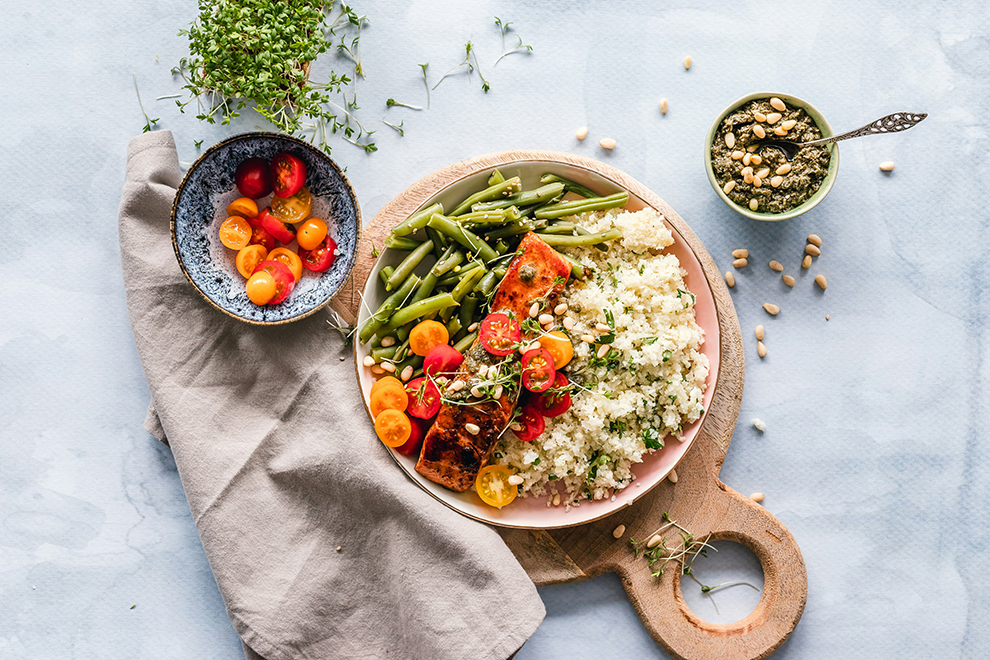The Standard American Diet’s Effect on Mental Health
Do you sometimes feel sad after the holiday season? Is it just you? Or is it the long, dark days? Perhaps, but maybe the Standard American Diet (SAD) is partially to blame. Many research studies have shown that the food and drink choices we make can have a profound effect on our mood and energy and contribute to depression, anxiety, ADHD, and other mental and physical health issues. So, let’s start the New Year off on the right food!
What is the Standard American Diet?
The Standard American Diet, or Western Diet, refers to high intake of ultra-processed foods and low intake of plant-based, nutrient dense foods. It includes fast food, refined grains (white rice, pasta, and bread), and processed meat (think hotdogs, breakfast, and deli meats). The SAD also includes foods high in saturated fats, refined sugar like high fructose corn syrup, and artificially sweetened drinks. Ultra-processed foods are easy to come by and designed to taste good, but they are often less filling and leave us craving more.
The Standard American Diet and Mental Health
The Standard American Diet negatively impacts mental health in several ways. First, it is often high in sugar and low in vitamins and nutrients. Refined sugars cause rapid changes in blood glucose, which can cause a briefly elevated mood followed by a “crash” of irritability, fatigue, and low mood. B vitamins, especially vitamin B12 and B9 (folate) are necessary for the body to make the neurotransmitters that affect mood, energy, and concentration, such as serotonin, dopamine, and norepinephrine. Vitamin D is needed for the body to produce melatonin (“sleep hormone”) and serotonin (“feel good hormone”) and absorb calcium and phosphate. Low levels of B and D vitamins can affect sleep, energy, mood, and concentration.
Second, the brain and body require healthy fats, but not all fats are created equal. Most conventional oils and fried foods contain omega-6 fatty acids, which can contribute to symptoms of depression and inattention. However, research shows that diets higher in omega-3 fatty acids, found in fish, seafood, and grass-fed beef can reduce symptoms of depression and ADHD.
Lastly, the gut produces 90% of the body’s serotonin, so gut health is vitally important. You can improve gut health by limiting artificial sweeteners, refined sugars, and trans fat and adding pre- and probiotics such as bananas, whole grains, greens, yogurt, and pickled or fermented foods. The Standard American Diet causes brain and body inflammation, which contributes to depression, mood disorders, altered sleep, and problems with attention and cognition.
Putting Your Best Food Forward
Dr. Drew Ramsey, a nutritional psychiatrist and leading author on nutrition and mental health, advocates for a Mediterranean-style diet, which includes less processed foods and more whole grains, seafood, fresh fruits and vegetables, and olive oil, with the mantra “seafood, greens, nuts, beans, and a little dark chocolate.” He encourages making “simple swaps” to help build healthy eating habits.
Small, incremental changes can sometimes be the most effective because they are easier to make than huge changes. Sometimes there is a concern that healthy means more expensive, but that is not always the case, especially if the healthier foods are more filling and satisfying than a sugary cereal for breakfast or chips for snack. If your child is picky, then engage them in the decisions for what to try swapping.
But what about comfort foods?
We all have favorite foods, and you should still enjoy them! The CDC says the key is to eat them less often, in smaller amounts, and consider preparing them a little differently. If you love to cook or bake, there are great resources online for how to make your favorite recipes a little healthier. For example, trade some of the white flour for wheat, halve the amount of salt, replace vegetable oil with coconut oil or apple sauce, or reduce sugar or replace it with lower glycemic index sweeteners.
So, whether you set a New Year’s resolution to improve your health or just want to feel your best in the coming year, keep in mind that food impacts your mood. Making little choices here and there to alter your meals, snacks, and beverages can make a big difference in how you and your family feel.
Simple Swaps to Try:
Consider replacing corn and canola cooking oils with extra virgin olive oil or avocado oil, which are mostly a monounsaturated fat with antioxidant properties.
Choose baked fish or chicken instead of fried when cooking or dining out.
Select grass fed rather than conventional beef.
Add plant-based proteins like beans — which are inexpensive and easy to make — as a side dish to meals. Try sprinkling a bowl of pinto beans with avocado and grated cheese for a simple no-meat Monday dinner.
Opt for brown rice when ordering take out.
Trade milk chocolate for >70% dark chocolate.
Instead of packing cookies or crackers for on-the-go snacks, try nuts, trail mix, and fresh fruit like mandarin oranges and apples. Nuts are high calorie, but they also contain fiber, protein, healthy fats, and slower-burning carbohydrates.
Juices and sodas can be traded for flavored seltzers, water infused with lemon or orange slices, or even kombucha for the adventurous.
Want a second cup of coffee? Consider green or herbal tea with honey instead.
A serving of kefir can replace a probiotic to help improve gut health.





